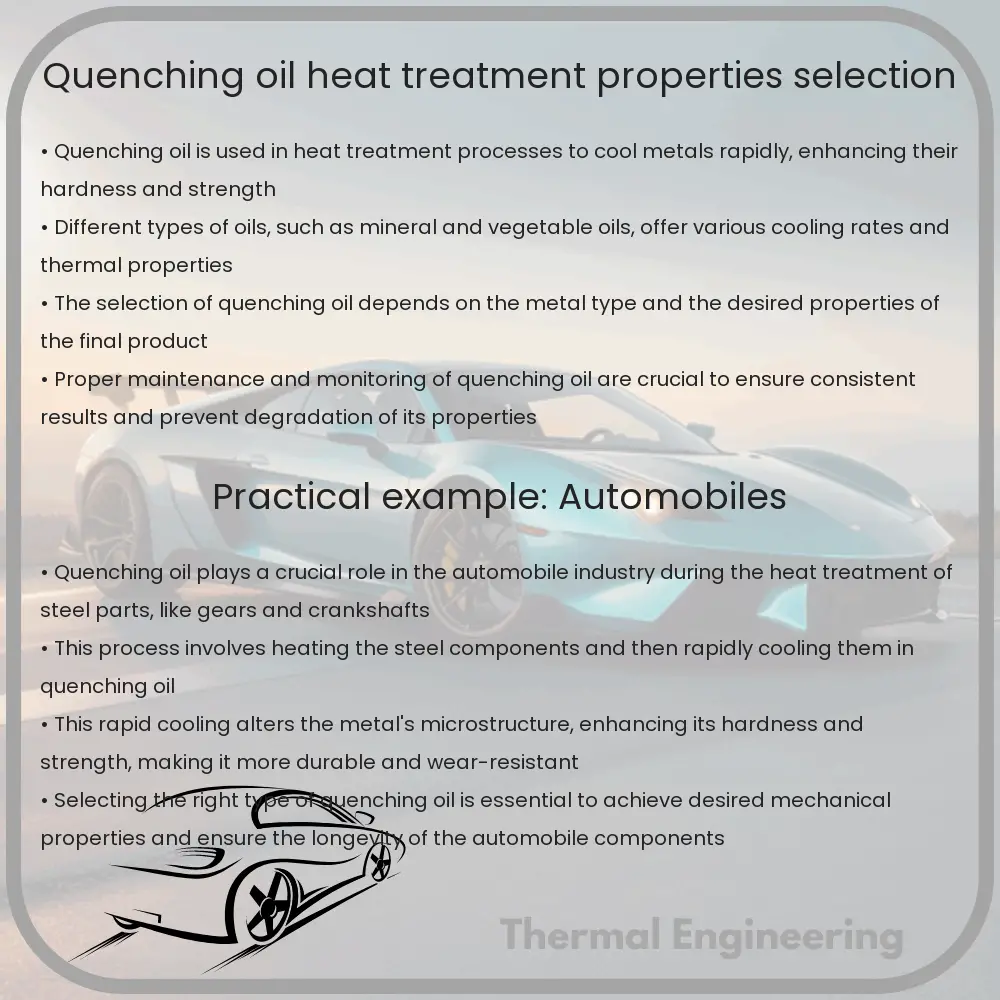Learn about quenching oil’s role, properties, types, and selection in metal heat treatment processes to enhance strength and hardness.

Quenching Oil: A Critical Component in Heat Treatment
Quenching oil plays a vital role in the heat treatment of metals, a process commonly employed to alter the physical and sometimes chemical properties of a material. This method is mainly used to increase the hardness and strength of metal alloys such as steel, by heating to a specific temperature and then rapidly cooling it in a quenching medium.
Understanding the Quenching Process
During heat treatment, the quenching step follows the heating and soaking phases. The metal is rapidly cooled using various media, including water, air, or oil. Quenching oil is particularly important for controlling the cooling rate and minimizing distortions and stresses in complex components.
Properties of Quenching Oils
Quenching oils are selected based on properties that influence their performance, including:
- Viscosity: The viscosity of the oil affects heat transfer efficiency. Oils with the right viscosity facilitate adequate cooling rates and reduce the formation of vapors, which can cause uneven cooling.
- Flash Point: This is the temperature at which the oil emits enough vapor to ignite in air. Higher flash points increase safety in heat treating operations.
- Wetting Ability: Good wetting properties ensure the oil comes into better contact with the metal surface, allowing for more efficient cooling.
- Thermal Stability: A thermally stable quenching oil can withstand high temperatures without breaking down, maintaining performance across repeated cycles.
Types of Quenching Oils
There are several types of quenching oils available, each suited to specific types of metals and desired outcomes:
- Mineral Oils: These are petroleum-based and are commonly used due to their good oxidative stability and low cost.
- Synthetic Oils: Typically used for higher temperature applications, they offer cleaner operations and longer life, though at a higher cost.
- Vegetable Oils: These are an environmentally friendly alternative, offering fast cooling rates comparable to mineral oils.
Selection Criteria for Quenching Oils
Selecting the right quenching oil requires considering various factors to achieve the desired metal properties:
- Compatibility: The quenching oil should be compatible with the metal type and the specific heat treatment process.
- Cooling Rate: Different metals and desired hardness levels require specific cooling rates, which should match the oil’s cooling characteristics.
- Volume and Throughput: The amount of metal being quenched and the speed of the process should be supported by the oil’s capacity to dissipate heat.
- Operational Safety: High flash point oils are preferable to minimize the risk of fire in operational settings.
- Environmental and Health Considerations: Non-toxic, biodegradable oils may be required depending on regulations and workplace safety standards.
Conclusion
Quenching oil is crucial for achieving the desired mechanical properties in heat-treated metals. Understanding its properties, types, and selection criteria allows engineers to optimize the outcomes of their heat treatment processes, ensuring components meet the required specifications while maintaining safety and efficiency.